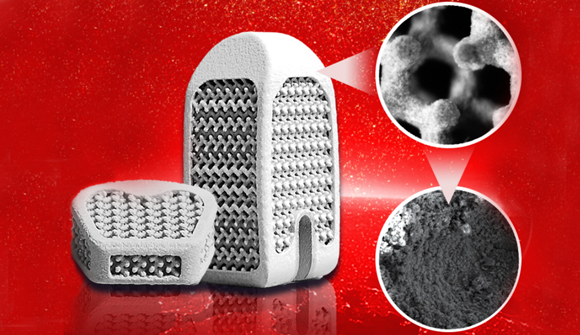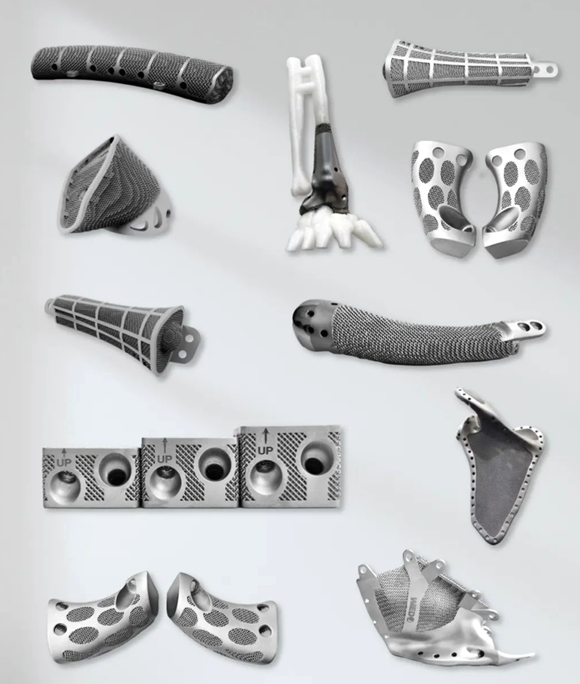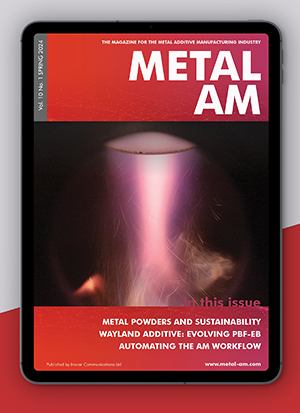Certification for additively manufactured bioactive-coated porous titanium interbody fusion device
December 13, 2023

Supported by Bright Laser Technologies (BLT), based in Xi’an, China, Wedo Bio-Medical Technology Co, Ltd., has received a Class III Medical Device Registration Certificate for its additively manufactured titanium interbody fusion device. The approval, given by the Chinese National Medical Products Administration (NMPA), marks the Hydroxyapatite-Coated Porous Titanium Alloy Interbody Fusion Device (WedoCage™) as market-ready.
Following on from the May 2023 approval of its thoracolumbar artificial vertebrae, produced by Laser Beam Powder Bed Fusion (PBF-LB), this latest approval is said to signify the expanding use of Additive Manufacturing in the medical industry. BLT believes that, in the near future, this will especially be the case for bespoke components aimed at repairing and/or reconstructing complex bone defects.
The WedoCage features a complex porous structure, requiring high precision in its fabrication. Given its elevated complexity, extensive overhangs, and demanding requirements for product process parameters and support structure additions during shaping, the BLT team actively cooperated with the Wedo R&D team to optimise the build process throughout the product’s development cycle, providing targeted solutions, including machine operation, support strategy, build parameters and heat treatment.
Through continuous exploration and adjustments, the metal porous structure was crafted to meet Wedo’s design requirements whilst enabling reliable production and quality. Additionally, the excellent mechanical performance of WedoCage, coupled with its truss and microporous structure design, is said to strike a balance between low elastic modulus and high fatigue performance. This characteristic allows for the immediate stability of the fusion implant, and may more effectively promote early osseointegration and long-term biological stability within the porous structure.
Since 2019, WedoCage is reported to have undergone prospective, randomised controlled clinical trials in more than ten research hospitals in China. These studies indicates that the fusion effective rate of the HA-Coated Porous Titanium Fusion Device at six months postoperatively was 97.10%, surpassing the fusion success rate of PEEK Fusion Devices over the same time frame (85.29%). During the trials, no product-related adverse events were reported.

Wedo currently uses the BLT-S210 and BLT-S310 Additive Manufacturing machines from BLT. The BLT-S210 has a build dimension of 105 x 105 x 200mm, while the BLT-S310 has a dimension of 250 x 250 x 400mm. These machines allow for the flexible and rapid building of personalised custom implants for orthopaedic medical devices and the batch manufacturing of standard products on a full-chamber basis.
With the widespread adoption of orthopaedic implants like the thoracolumbar artificial vertebral body and WedoCage, BLT has stated that it is eager to deepen its collaboration with Wedo. By utilising metal Additive Manufacturing technology, BLT aims to benefit more clinical patients and inject greater vitality and possibilities into orthopaedic healthcare.
In the future, BLT plans to partner with more collaborators in the medical sector in order to to accelerate the development of medical-grade metal materials and innovative products – this with the goal of enabling its customers to provide safer, more precise, adaptable, and efficient solutions to patients.
BLT believes that with the support of metal Additive Manufacturing technology, the application of metal orthopaedic implants will continually optimise and enhance the design and performance of medical devices. This will drive ongoing progress and innovation in medical technology, contributing to significant growth and breakthrough in orthopaedic healthcare.
Download Metal AM magazine

















